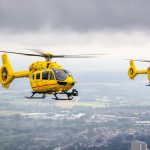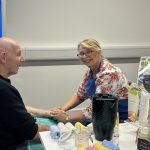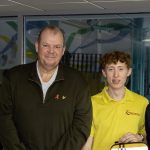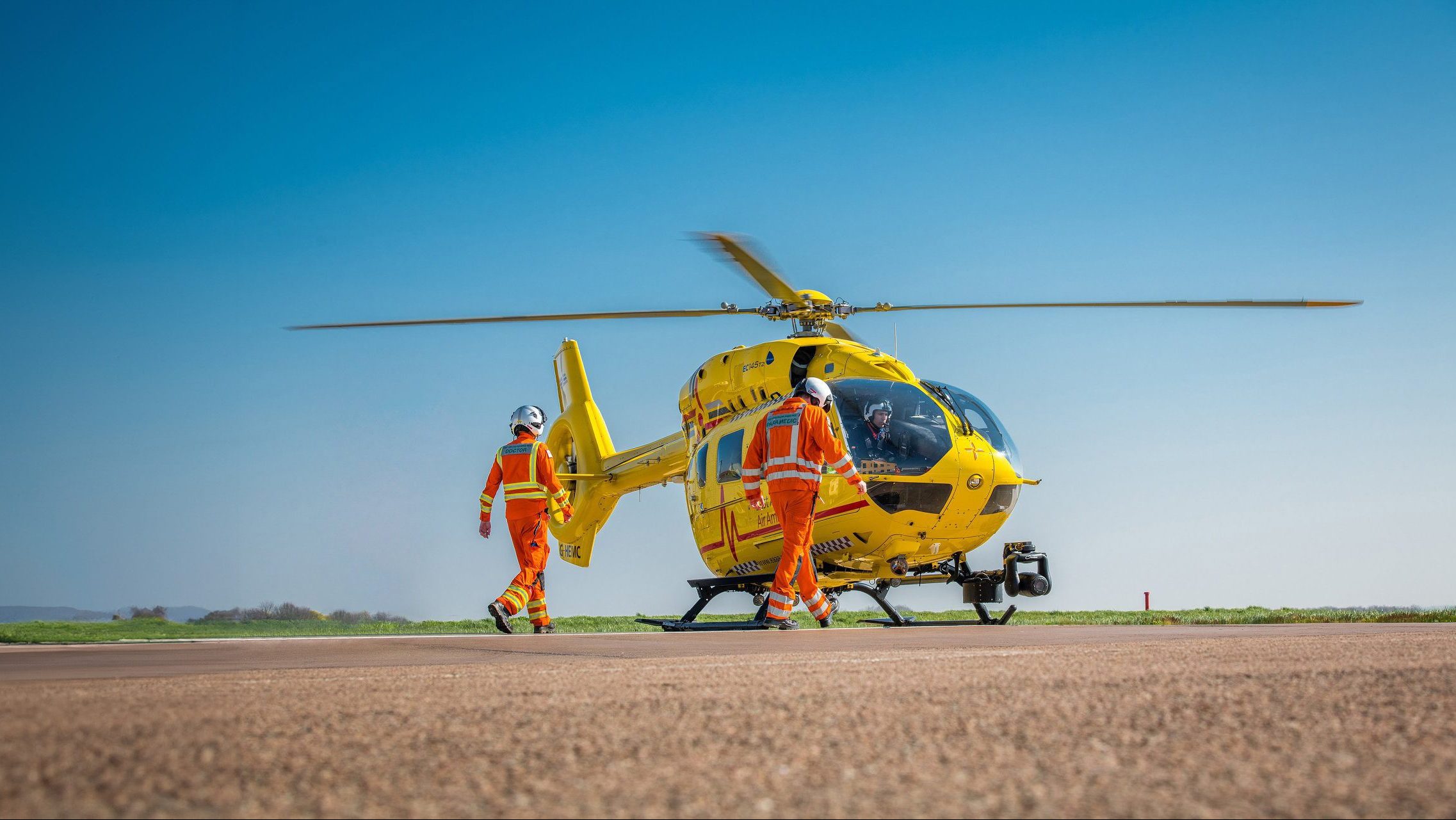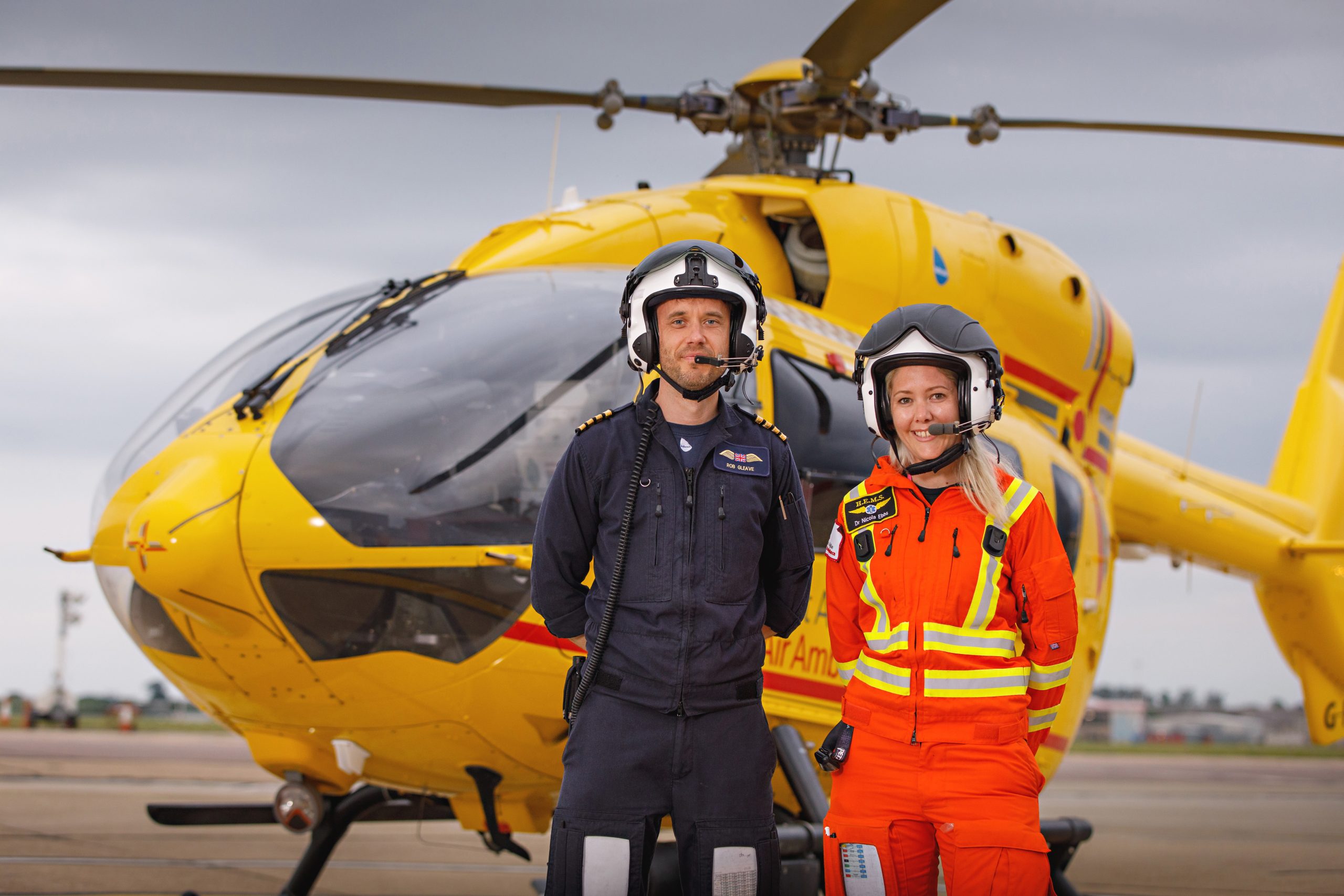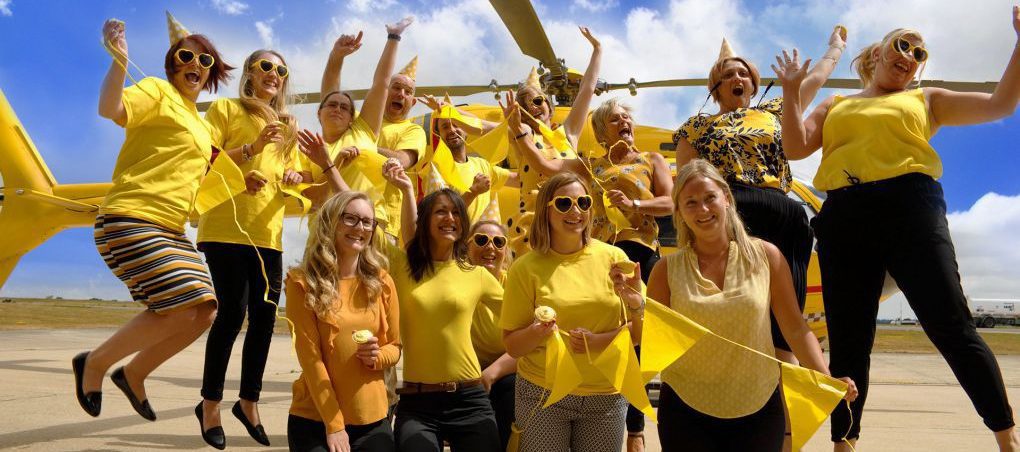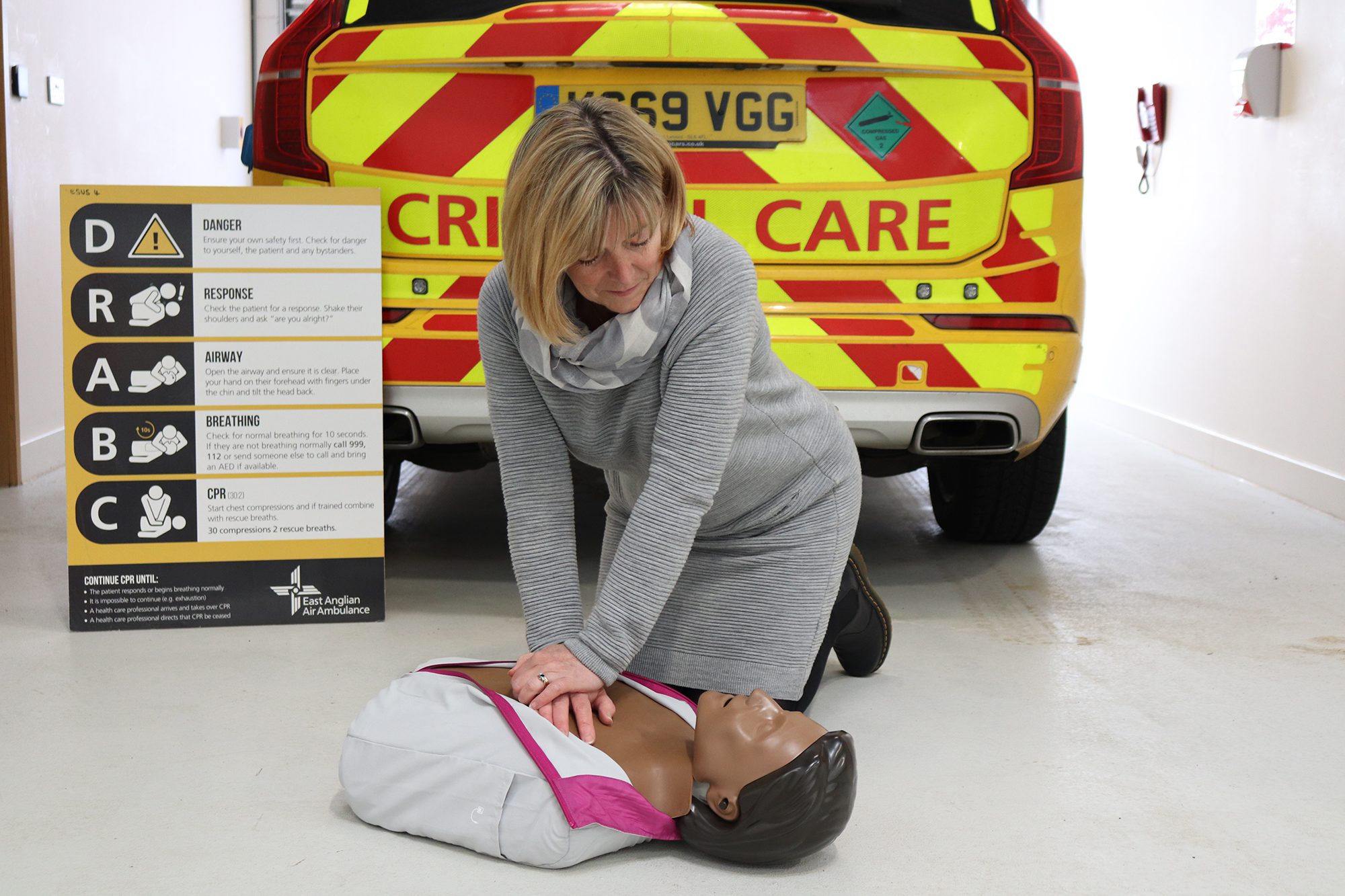5 Jul 2023
NHS at 75 years: Saving lives together
As the NHS turns 75 this July, we are celebrating this milestone by shining a light on some of the close partnerships between our organisations, which help to save lives and bring hope to the most seriously ill and injured people in East Anglia.
Our crews often attend people in what may be the worst moments of their and their family’s lives. From road traffic collisions to cardiac arrests to medical emergencies, our specialist doctors, critical care paramedics and pilots bring the advanced skills, equipment and medicine directly to the scene, in the fastest time possible. We are an independent charity, however we work extremely closely and have developed positive partnerships with the NHS to improve patient outcomes and ultimately save more lives.
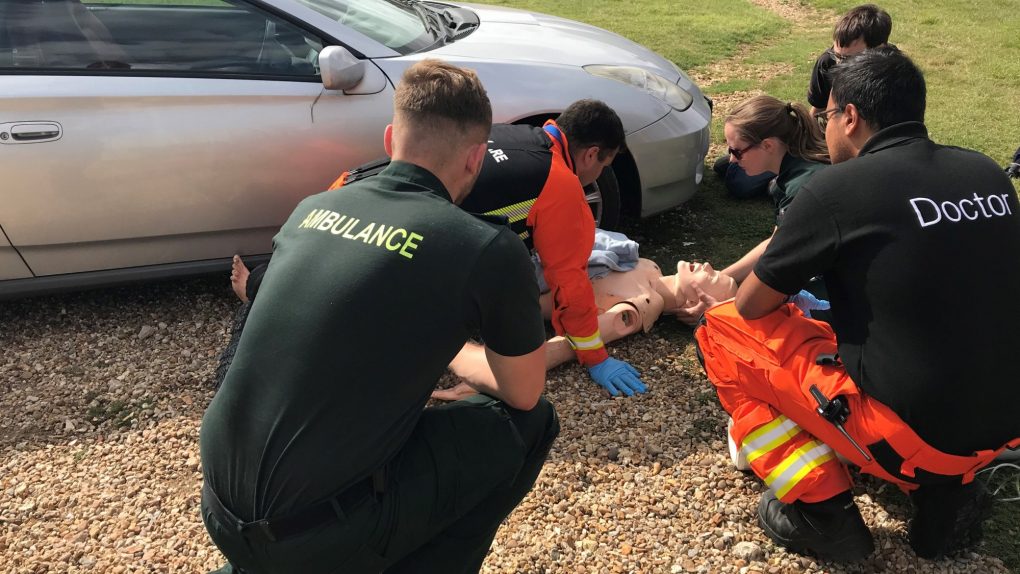
Our Pre-Hospital Emergency Medicine (PHEM) team will usually consist of at least one doctor and one critical care paramedic, with consultant supervisors on some shifts. While some of the crews are employed directly by EAAA, there are other members of our EAAA family who may be seconded from the NHS or employed by the NHS and undertake shifts with us. They may also be HEMS Paramedics (Helicopter Emergency Medical Service) training with us and may eventually ‘graduate’ to become critical care paramedics. It’s different for the various members of our clinical team, but one thing is constant; they all bring something special and are passionate about supporting the communities we serve.
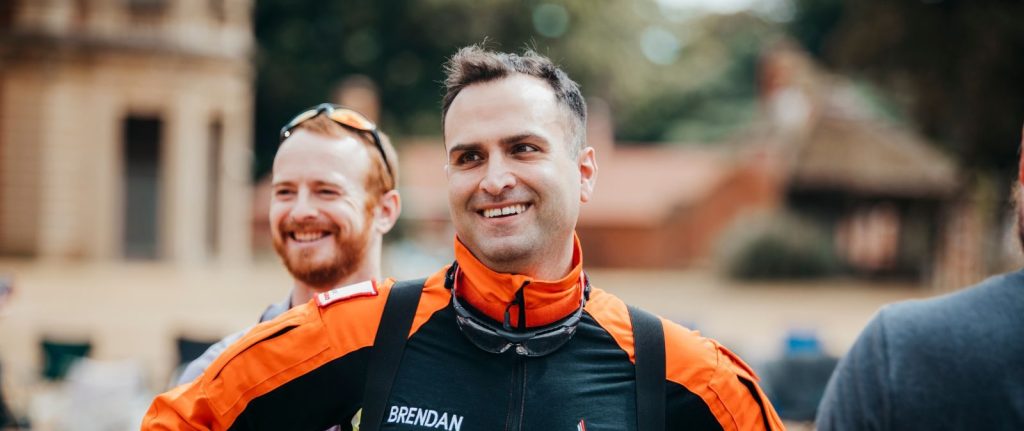
Senior Clinical Fellow, Dr Brendan is one of around 35 Doctors working with EAAA, who also work within the NHS. As an NHS doctor, he completes shifts with EAAA as part of the NHS’ commitment to supporting us. We spoke to Dr Brendan about his role:
“I am a Senior Clinical Fellow with EAAA. With the NHS, I am a Consultant in Emergency Medicine at Addenbrooke’s Hospital, Cambridge. I am VERY lucky as my work is 50% NHS and 50% EAAA, which is an enviable mix of life and keeps me very happy.
“There are so many benefits to the close working relationships between EAAA and the NHS: primarily, it is great for patients. We understand well the care that our patients will be getting once they arrive at the hospital. We have relationships with many of the treating teams so, every now and then, on scene, we can make a specific phone call to help plan our immediate management.
“We can also get follow-up for our patients and learn what went well and what can be done better. Additionally, those of us at EAAA who are Consultants at Addenbrooke’s also take the role within the East of England Trauma Network as Network Coordination Consultants, and working in the pre-hospital system definitely enhances my own understanding of some of the processes surrounding this.
“I am also a Paediatric Emergency Medicine subspecialist and Paediatric Trauma lead for the Emergency Department in Cambridge. I am on the Patient Outcomes Group at EAAA and look at the paediatric portfolio (though Dr Mauger is the boss!)?
“Essentially all the clinical staff, except those who may have trained outside the UK, will have been trained and worked their way up the NHS route. It is expensive and labour-intensive, and we are all enormously grateful to the tax-payer for this. The work at EAAA, because of its acuity, means that we are all ‘current’ in the knowledge and skills needed to treat patients and that is something we bring back to our NHS practice.?
“I was told once that for a happy working life as an Emergency Physician, it is important to regularly work with teams outside of your own Emergency Department (though I do absolutely adore my ED colleagues!) and where could be better than EAAA?
“Two things that I think are really important to the ‘culture’ of EAAA: firstly that the operational and charitable arms of the charity are fully integrated. Secondly, EAAA strives for a good working relationship with EEAST (East of England Ambulance Service NHS Trust). I think essential to all this is ‘social capital’; the idea that you know people and have a relationship with them both on and off the pitch.”
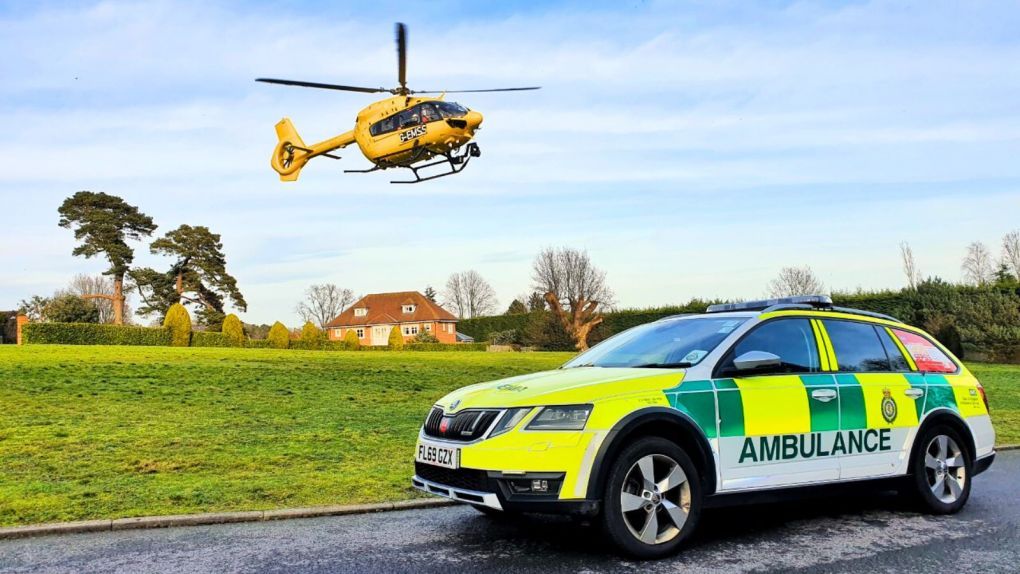
Thank you for everything, NHS. Happy Birthday.
